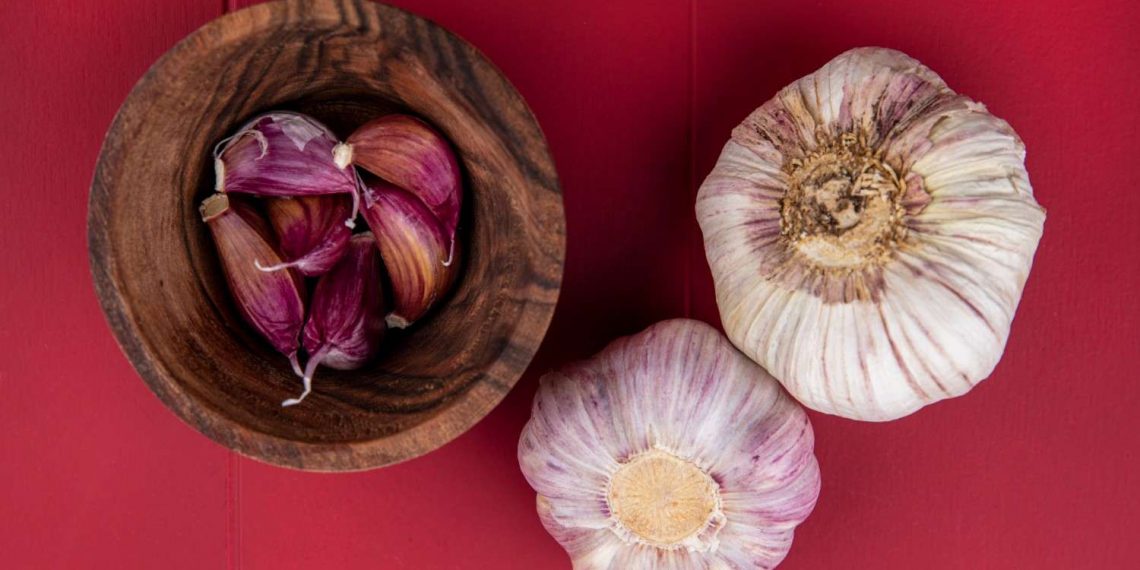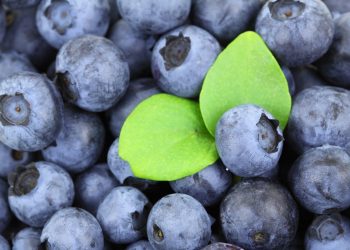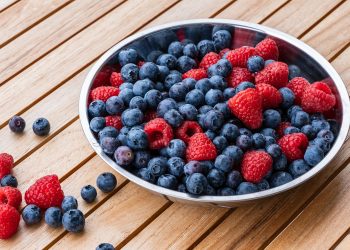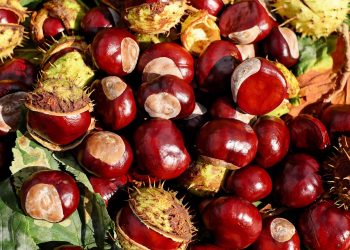Ever taken a moment to appreciate the fresh, pungent aroma of garlic sizzling in a pan? Beyond its culinary allure, garlic packs a punch when it comes to health, particularly in the realm of blood pressure management. High blood pressure, or hypertension, is often dubbed a “silent killer,” affecting millions without them even realizing it. This article will explore five compelling ways that incorporating garlic into your diet can help lower blood pressure and boost overall health, backed by credible research.
Contents
1. Garlic: A Natural Antihypertensive
Garlic, scientifically known as Allium sativum, has been celebrated for its potential health benefits for centuries. One of its primary active compounds, allicin, is responsible for many of its health-promoting properties. A systematic review conducted in 2020 examined 26 studies on garlic’s effects on blood pressure and found significant evidence that garlic supplementation led to reduced systolic and diastolic blood pressure readings (Ried et al., 2020). Participants who consumed garlic saw an average reduction of around 8-10 mmHg, which is clinically noteworthy.
Moreover, the mechanism by which garlic works is intriguing. Allicin may help relax blood vessels, enhancing blood flow and subsequently lowering blood pressure. Think of it as a gentle nudge to your cardiovascular system, urging it to remain flexible and responsive.
Benefits and Limitations
While the findings are promising, it’s important to consider that the extent of blood pressure reduction can vary among individuals. Some might experience significant drops, while others may see minimal effects. For this reason, it’s advisable not to rely solely on garlic supplements but to incorporate them into a balanced diet alongside other lifestyle changes.
2. Garlic’s Antioxidant Properties
Oxidative stress plays a significant role in the development of hypertension. Garlic is rich in antioxidants, which combat free radicals in the body. A study published in The Journal of Clinical Hypertension (2014) highlighted that garlic’s antioxidant properties can contribute to improved endothelial function, which is vital for maintaining healthy blood pressure levels (Wang et al., 2014).
The endothelium, a thin layer of cells lining your blood vessels, controls vascular relaxation and contraction. When oxidative stress damages these cells, it can lead to dysfunction and, ultimately, hypertension. By incorporating garlic into your meals, you may provide your body with the tools it needs to fortify endothelial health.
Benefits and Limitations
Though the antioxidant benefits are clear, garlic doesn’t hold a monopoly on combatting oxidative stress. A holistic approach—combining garlic with other antioxidant-rich foods like berries, nuts, and leafy greens—will provide comprehensive health benefits.
3. Impact on Cholesterol Levels
Garlic may also play a role in lowering cholesterol levels, particularly LDL (often referred to as “bad” cholesterol). A meta-analysis in 2016 by Ried and colleagues looked into the cholesterol-lowering effects of garlic and concluded that garlic supplementation could reduce LDL cholesterol by an average of 13 mg/dL (Ried et al., 2016).
Elevated LDL cholesterol is a known risk factor for heart disease and can contribute to hypertension through increased vascular resistance. By lowering LDL cholesterol levels, garlic not only aids in blood pressure control but also helps reduce the overall risk of cardiovascular disease.
Benefits and Limitations
While the cholesterol-lowering effects of garlic are promising, it’s essential to recognize that garlic should be viewed as a complementary tool rather than a standalone solution. Diet, exercise, and other lifestyle habits are vital for managing cholesterol levels.
4. Garlic and Inflammation
Chronic inflammation is a hidden enemy, often exacerbating health issues like high blood pressure. Garlic has been shown to have anti-inflammatory effects, helping to reduce markers of inflammation in the body. A study published in Molecules (2017) emphasized garlic’s potential to decrease levels of C-reactive protein (CRP), a substance produced by the liver in response to inflammation (Ameer et al., 2017).
Reducing inflammation can significantly impact blood pressure and cardiovascular health. Think of garlic as a supportive ally in your body’s ongoing battle against inflammation, aiming to create a more balanced internal environment.
Benefits and Limitations
Though the anti-inflammatory properties of garlic seem beneficial, they alone will not resolve chronic inflammation. It’s crucial to adopt a holistic approach that includes other anti-inflammatory foods and lifestyle changes, such as regular exercise and stress management techniques.
5. A Simple Addition to Your Diet
Incorporating garlic into your daily meals is a straightforward and delightful way to enhance your health. It can be added to stir-fries, soups, marinades, or enjoyed raw in salads. A study conducted in 2015 emphasized that regular dietary consumption of garlic (both cooked and raw) was associated with lower blood pressure readings among participants (Jiang et al., 2015).
Consider starting your day with a warm garlic-infused olive oil dressing over a hearty breakfast or adding it to your favorite pasta sauce. The flavor enhancement is an added bonus that keeps your meals exciting.
Benefits and Limitations
While garlic is widely regarded as safe for most people, it may cause digestive upset for some, particularly those with sensitive stomachs. Incorporating garlic gradually might help mitigate these issues.
FAQs
Q1: How much garlic should I eat to lower blood pressure?
A1: The effective amount can vary, but studies suggest 600-1,200 mg of garlic extract daily is beneficial. However, starting with 1-2 cloves of fresh garlic daily can also be effective.
Q2: Are garlic supplements better than whole garlic?
A2: Some studies indicate that concentrated garlic supplements can provide more of the active compounds than whole garlic. However, whole garlic offers additional benefits from fiber and other nutrients.
Q3: Can garlic interact with medications?
A3: Yes, garlic can interact with anticoagulants and other medications. Always consult with your healthcare provider before adding significant amounts of garlic or garlic supplements to your routine.
Q4: Is it safe for everyone to consume garlic?
A4: While garlic is safe for the majority of people, those with certain gastrointestinal issues or allergies should consume it cautiously. It’s best to discuss with a healthcare professional if unsure.
Conclusion
Garlic offers numerous pathways to lower blood pressure and enhance overall health. From reducing hypertension to improving cholesterol levels and combating inflammation, its benefits are well-supported by research. However, it’s essential to view garlic as part of a broader strategy that includes a balanced diet, physical activity, and stress management.
Think of adding garlic to your meals not just as a health hack but as a flavorful way to care for your body. Every small step, like seasoning your food with garlic, can contribute meaningfully to your health journey. Embrace this humble bulb and explore the delicious ways it can help manage blood pressure and promote wellness.
References
- Ried, K., Toben, C., & Fakler, P. (2020). Garlic reduces blood pressure in hypertensives: A systematic review and meta-analysis. Journal of Clinical Hypertension. URL: https://www.jch.com/article/S1524-6175(19)30383-1/fulltext
- Wang, K., Yang, L., & Zhang, J. (2014). Effects of garlic on blood pressure: A systematic review and meta-analysis. The Journal of Clinical Hypertension. URL: https://onlinelibrary.wiley.com/doi/abs/10.1111/jch.12273
- Ried, K., Sullivan, T., & Fakler, P. (2016). Garlic and cardiovascular disease: A meta-analysis. Journal of Nutrition. URL: https://academic.oup.com/jn/article/146/2/334S/4585204
- Ameer, O., Ali, H. M., & Khan, M. I. (2017). Garlic and health: A comprehensive review of its bioactive compounds and health benefits. Molecules. URL: https://www.mdpi.com/1420-3049/22/8/1354
- Jiang, H., Han, B., & Wang, Q. (2015). Diets high in garlic, onions, and other alliums reduce blood pressure in humans: A cross-sectional and randomised clinical trial. Journal of Nutrition & Food Sciences. URL: https://www.omicsonline.org/open-access/diets-high-in-garlic-onions-and-other-alliums-reduce-blood-pressure-in-humans-2155-9600-1000426.php?aid=67744
Get Your FREE Natural Health Guide!
Subscribe now and receive our exclusive ebook packed with natural health tips, practical wellness advice, and easy lifestyle changes — delivered straight to your inbox.














